Clifford Garstang's Blog, page 107
March 16, 2012
Tips for Writers: Conferences
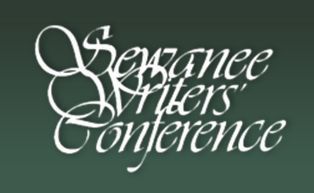 Last week, a commenter asked what my opinion of writers conferences was and whether I favored one over another, so that will be my topic today. It's a timely question because if you're thinking of doing a summer writers conference you probably need to get your application in pretty soon.
Last week, a commenter asked what my opinion of writers conferences was and whether I favored one over another, so that will be my topic today. It's a timely question because if you're thinking of doing a summer writers conference you probably need to get your application in pretty soon.The commenter specifically asked about Sewanee, Tin House, and Bread Loaf.
I haven't been to Tin House, so I can't offer any direct comments about that conference. I can say, though, that I've known a lot of people who have gone and most (or all?) had very enthusiastic reviews. They have a pretty terrific faculty, which, as I'll discuss below, is an important consideration.
Tin House isn't the only conference I haven't been to. There are conferences in Taos, Squaw Valley, Iowa, and lots of others around the country (and elsewhere) that you might investigate. I can really only tell you about the ones I've attended: Sewanee, Bread Loaf, Tinker Mountain, Under the Volcano, and Indiana University.
Sewanee and Bread Loaf are in a class by themselves (although I think Tin House might be approaching their level). For one thing, they're incredibly difficult to get into, each having acceptance rates of 20% or less, whereas, as I understand it, most other conferences will take all comers. They are also longer. Most conferences are a week or less, but Bread Loaf is 11 days and Sewanee 12. The actual workshops (about which I'll have more to say) don't meet any more than at the other conferences, but the longer time frame gives more opportunities to take in readings, craft talks, lectures, and other activities outside of the workshop.
I like them both a lot, but as I've said frequently I give the edge to Sewanee for reasons that are difficult to articulate. The housing is more comfortable at Sewanee (unless you really like rustic). Being slightly smaller, Sewanee feels a little friendlier. There's a touch of hierarchy to both but it's a tiny bit more off-putting at Bread Loaf. On the other hand, Bread Loaf has a better offering of small craft talks offered by faculty, fellows, and visitors. But both offer outstanding faculty, wonderful social opportunities, and beautiful settings (mountaintops in Vermont and Tennessee). I also like the Sewanee approach that includes team teaching, providing additional exposure to faculty, and also creating the possibility of sitting in on some other workshops that meet on other days. In my opinion, you can't really go wrong with either one (subject to the workshop discussion below). Cost may be a deciding factor. Because of the Tennessee Williams Foundation endowment, Sewanee is way cheaper.
Tinker Mountain, located at Hollins College just outside of Roanoke, Virginia, is a good option, especially for people in the vicinity, although people come from everywhere. (I live just 80 miles away.) It has a solid faculty--they all give craft talks and readings--and a nice setting, plus it's reasonably priced.
I've been to Under the Volcano several times, working with outstanding faculty, including Russell Banks and Grace Paley. It's located in a Mexican village, Tepoztlan, so the setting is fantastic. But the offerings are irregular and I'm not sure the workshop is being done every year anymore. It's too bad, because I really enjoyed it.
So conferences, in my opinion, are worth attending because you meet lots of writers--your peers and the faculty--plus you attend readings and lectures that may be enlightening. That alone may be worth the time and money. I'm all in favor. But the heart of most of these conferences is the workshop, and that's where your consideration should lie when making your choice. Not all great writers are great teachers. Not all workshops are created equally.
Now, I have been in workshops led by famous writers who were also fantastic teachers, including Richard Bausch, John Casey, and Tim O'Brien at Sewanee, Charles Baxter at Bread Loaf, and Russell Banks and Grace Paley at Under the Volcano. I have also been in workshops with fantastic writers who were NOT so famous, but were also outstanding teachers, including Chuck Wachtel at Under the Volcano, Kevin McIlvoy at Bread Loaf, and Pinckney Benedict, Fred Leebron, and Hal Ackerman (screenwriting) at Tinker Mountain. And, finally, I've had a couple of workshops with writers/teachers I hadn't sufficiently investigated in advance. If those were my only experiences I'd probably say that conferences are a waste of time.
So, with respect to the workshop, it's all a matter of who your're going to be working with, and what you can find out about him or her. So, at Tin House, Taos, and elsewhere, check out the faculty. They have some pretty great writers in each case, but you might want to check with some people who have studied with them to find out what the experience in workshop is really like. And if you go to a conference as I did a couple of years ago and find that the workshop leader is not so wonderful, don't despair. Take advantage of all the other activities on offer and get as much out of the experience as you can.
Published on March 16, 2012 06:00
March 14, 2012
SWAG Writers: WriterDay and OpenMic Night
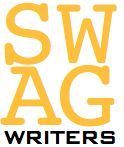 SWAG Writers (the Staunton-Waynesboro-Augusta Group of Writers), the organization I started a couple of years ago, continues to grow. Tonight we had a terrific turnout for our monthly gathering--the WriterDay and OpenMic Night--which occurs on the 2nd Wednesday of each month, starting at 6pm, at the Darjeeling Café in Staunton.
SWAG Writers (the Staunton-Waynesboro-Augusta Group of Writers), the organization I started a couple of years ago, continues to grow. Tonight we had a terrific turnout for our monthly gathering--the WriterDay and OpenMic Night--which occurs on the 2nd Wednesday of each month, starting at 6pm, at the Darjeeling Café in Staunton.Tonight's group was especially fun. We had 16 readers, including a wide variety of styles, genres, and ages. Some serious stuff, some dark stuff, and some lighter work was included. And besides the readers we had a dozen or so folks who came out just to listen (plus a few patrons of the café who had no choice).
We're grateful to the Darjeeling Café for hosting this event each month!
This month we also have a second event, a talk by Charles Shields, biographer of both Harper Lee and Kurt Vonnegut. That talk will be held on March 28, at 7pm, at the Spencer Center for Civic and Global Engagement at Mary Baldwin College. The talk is free and open to the public.
Let me know if you'd like to be on the email list to receive notice of future events.
Published on March 14, 2012 19:33
March 12, 2012
The New Yorker: "Appreciation" by Rivka Galchen
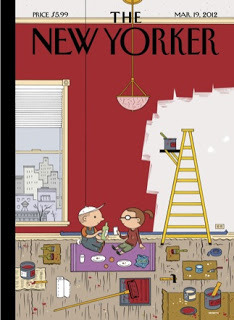
March 17, 2012: "Appreciation"by Rivka Galchen
This story begins well. It's written as if it were theevidentiary record in a dispute between a mother and daughter over a sum ofmoney. The contributions and faults of each are recounted and it seems that adecision is going to be reached by the end.
The mother, a widow, was making a good salary (until she waslaid off); the daughter began with a small salary but gradually did muchbetter. The mother helped her son buy an apartment and so she did the same withher daughter, although when that apartment was sold, there was a huge profit—theappreciation—to account for. The mother is well meaning, but to her daughtershe appears controlling, and in fact, she retains control of that profit.
For me, the ending was unsatisfying, and the questions areleft unresolved. The climax is too subdued.
The Q&Awith Rivka Galchen isn't much help.
Published on March 12, 2012 18:39
March 9, 2012
Tips for Writers: It's Your Vision
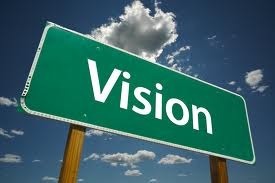 Only the writer knows what she is trying to do with her story. It's unquestionably useful to get the reaction of readers in order to learn whether the writer's vision is getting across, but in the end it is only the writer's vision that matters.
Only the writer knows what she is trying to do with her story. It's unquestionably useful to get the reaction of readers in order to learn whether the writer's vision is getting across, but in the end it is only the writer's vision that matters.Recently (as in yesterday) some students of mine expressed concern that others in the workshop were trying to rewrite their stories. The comment served as a reminder to me to not only warn against doing this (my workshop guidelines make this point), but more importantly to emphasize that not every comment a writer hears in workshop will be of equal value. The purpose of the workshop is not to convene a committee for the purpose of revising a story. The workshop is a focus group--people who will reflect for the benefit of the writer the effect that the work has on readers. The writer's job--and it's not an easy one--is to pick and choose from among the comments in workshop (including comments by the teacher) to find the ones that make sense, always bearing in mind the writer's vision for the story. It could be that nothing at all will be usable, although in my experience usually some good ideas do emerge. More often, however, comments will conflict with one another. Then what does the writer do? It depends on the vision.
I'm thinking about this now as I work on revisions to my novel after receiving comments from my agent. Mostly her comments are spot-on. Occasionally, I see things differently. Ultimately, it's my name that goes on the book, so the work has to be mine. The same goes for my students.
Published on March 09, 2012 13:43
March 7, 2012
AWP 2012 Recap: Thinking With Your Own Apparatus
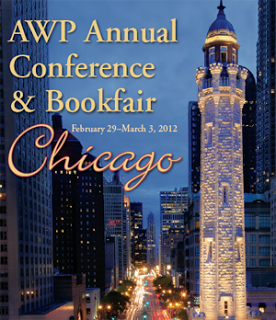 "Thinking with Your Own Apparatus: Fiction Writers and History" was an interesting panel that in my view was equally applicable to historical and contemporary fiction. The bottom line has two parts: the essential details that give work authenticity AND the emotional truth of each character.
"Thinking with Your Own Apparatus: Fiction Writers and History" was an interesting panel that in my view was equally applicable to historical and contemporary fiction. The bottom line has two parts: the essential details that give work authenticity AND the emotional truth of each character.There were some excellent speakers on this panel, and I'll mention 3:
Nalini Jones, who writes about India, described trips there in which she immersed herself in the experiences that her characters would have--living in an orphanage, attending AA meetings, riding the bus, etc.--in order to render the details of their lives but also to know what they felt.
Eugenia Kim has worked at using aspects of the Korean language to create authentic dialogue, but also studied the period of Japanese colonial history in Korea about which she was writing.
And Dolen Perkins-Valdez talked about the "emotional core" rather than the details of history. She told a great story about visiting the Museum of the Confederacy in Richmond, Virginia, an emotional experience for an African American. She tried to explain her emotions to her husband when she returned home, and he observed that she was experiencing something akin to what her character--a slave woman during the Civil War--must have felt.
Good advice from three good writers.
Published on March 07, 2012 11:14
March 6, 2012
The New Yorker: "Ever Since" by Donald Antrim

March 12, 2012: "EverSince" by Donald Antrim
Every once in a while, the New Yorker story is actually setin New York. Often, it seems, such stories involve a cocktail party. That's thecase here, where a litigator has gone with his book-publicist girlfriend to abook launch party in an expansive loft apartment. Jonathan likes his date,Sarah, but he can't stop thinking about Rachel, the woman who left him foranother man, the woman whom he wanted to marry but had not summoned the courageto do so. At the party, he frequently refers to Rachel—what she said, what shethought—as if neither he nor Sarah has anything interesting to contribute. Hedrinks too much. He goes in search of cigarettes that he doesn't find, buteventually he lights a joint that he shares with Sarah and others. He tries topropose to Sarah, using a cherry stem as a ring. She's unimpressed, but she'sstill with him at the end and they seem comfortable.
Not very exciting, as stories go, but it's noticeable thatit relies heavily on the moment. That is, there are few flashbacks, despite thefact that Jonathan is dwelling on his dead relationship with another woman. That helps make an otherwise uneventful story keep its hold on the reader, Ithink. A lesson worth noting. Antrim comments on that in Q&Awith Donald Antrim.
Published on March 06, 2012 06:10
AWP 2012 Recap: The Long and Short of It
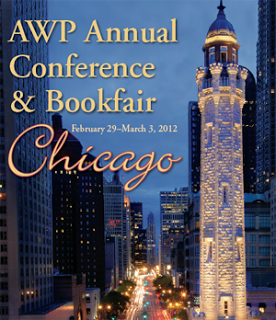 First day of the conference, first time-slot, lots of panels to choose from. I picked "The Long and Short of It: Navigating the Transitions between Writing Novels and Short Stories," featuring Bruce Machart, Hannah Tinti, Melanie Thon, Erin McGraw, and Kevin Wilson.
First day of the conference, first time-slot, lots of panels to choose from. I picked "The Long and Short of It: Navigating the Transitions between Writing Novels and Short Stories," featuring Bruce Machart, Hannah Tinti, Melanie Thon, Erin McGraw, and Kevin Wilson.The panel topic appealed to me because I've managed to publish stories, including one collection and one forthcoming novel-in-stories, but am now revising a novel and have started a second one. They're obviously very different animals, and I thought it would be useful to hear more experienced writers talk about this "transition."
And I found it very useful. Not that there was a lot of new information, but I was reminded of things that I hope to keep in mind. For example, Erin McGraw pointed out that unlike the novel, which is expansive, a short story does a lot of its work by inference. (I tend to want to cram a lot into a story that isn't really essential.) Hannah Tinti suggested--for both stories and novels--going back to the original seed or inspiration for a story in order to help find the way through it. And then, for her, a story is built sentence by sentence, which is not at all how she approaches the novel, which she seems to do more in blocks, moving around to write the bits she knows she needs, eventually filling in the gaps. Kevin Wilson--funny as always--talked about his approach to the story, which is to begin with a conceit. But the novel, it's the characters he cares about. He also said that a story is like stealing a car: You hop in, drive off as fast as you can, and eventually crash. With the novel, though, you just keep going!
Good advice from some very good writers!
Published on March 06, 2012 05:08
March 5, 2012
AWP 2012 Recap: The Troublesome Novel
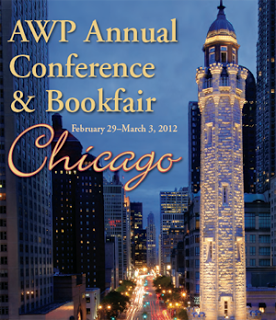 Last night I got home from a quick trip to Chicago for the annual AWP Conference. As always, the conference was overload--too many panels, too many people, too many parties--and of course I'm already looking forward to the next one (Boston, March 6-9, 2013).
Last night I got home from a quick trip to Chicago for the annual AWP Conference. As always, the conference was overload--too many panels, too many people, too many parties--and of course I'm already looking forward to the next one (Boston, March 6-9, 2013).I didn't do any blogging and very little tweeting or FB updates while I was in Chicago, so over the course of the coming week I plan to do blog posts reflecting on some the great sessions I attended.
One that I really liked was "Unrequited Love: Renewing Your Vows to the Troublesome Novel," featuring Elizabeth Brundage, Stewart O'Nan, Jenna Blum, Alice Elliot Dark, and Carole De Santi.
As Elizabeth said in her opening remarks, many writers have a novel or two or more stashed in a drawer. It may not be publishable as is, for one reason or another, but we probably all feel that there is something there worth rescuing--even if it's only an idea. These five writers talked about their experiences with these drawer manuscripts. Most of the panelists had stories of books that they wrote and couldn't or didn't get published that they came back to much later, when they finally realized what needed to be done. As someone with 2 novels in a drawer (two halves of one failed novel that I split into two failed novels), I'd love to think that there's still hope for that work, even if none of the original sentences survive.
During the Q&A session, I asked this: All of the panelists had a healthy and patient attitude toward their problem novels, and it worked out well for them in the end. What advice did they have for writers who are tempted to just turn those problem novels into eBooks and sell them on Amazon? I asked this not because I have any thoughts of doing this, but I certainly know that many writers these days don't have the patience to wait. And the panelists answered as I thought they would--careers are long things and one doesn't want to ruin a career by self-publishing something that just isn't ready; that everything can benefit from reconsideration and revision, and that there are still rewards to traditional publishing. I agree with these answers, although I doubt writers who are tempted to self-publish would be convinced.
A very good panel discussion.
Published on March 05, 2012 09:07
March 2, 2012
Tips for Writers: Meet-up
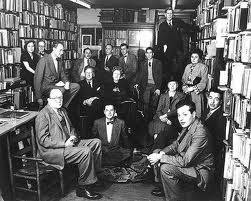 Everyone knows that writing is a solitary profession. Sometimes too solitary. We sit at our desks and write. We talk to the computer. We talk to the dog. I don't know about you, but there are days that go by that I don't speak to another human being on the telephone.
Everyone knows that writing is a solitary profession. Sometimes too solitary. We sit at our desks and write. We talk to the computer. We talk to the dog. I don't know about you, but there are days that go by that I don't speak to another human being on the telephone.I like it that way. I am connected--a little too connected--via internet, on Facebook and Twitter (follow me, by the way, at @cliffgarstang), and I stay in touch with a lot of people via email. But I sometimes crave the company of writers.
That's one reason why I started a local writing community. We get together in a café once a month and talk about the business, and we have an open mic. We also host occasional readings where visitors share their work with us. It's fun, and it's just nice to get out from time to time and mingle with other writers.
Which, if I've scheduled this post correctly, is what I'm doing at the instant these words appear online. I am at AWP, the annual conference of the Association of Writers and Writing Programs, this year held in Chicago. AWP is a wild three days of panels, readings, parties, and a huge bookfairs celebrating small presses and magazines. And, this year, 10,000 writers. I don't know if attending AWP is good for my career. I suspect it's not, although the publisher of my first book and my forthcoming book will have a table at the bookfair, and I'll also be promoting our magazine. It could be that our time would be better spent in some other way.
Whatever. It's fun. And it's nice to get together with other writers. I recommend it.
Published on March 02, 2012 07:00
February 29, 2012
Forthcoming Books: Dust to Dust by Benjamin Busch
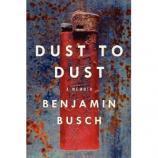 Dust to Dust is a memoir by Benjamin Busch, son of the novelist and short story writer, Frederick Busch.
Dust to Dust is a memoir by Benjamin Busch, son of the novelist and short story writer, Frederick Busch.Here's the description:
Dust to Dust is an extraordinary memoir about ordinary things: life and death, war and peace, the explorations of childhood and revelations of adulthood by Busch--a U.S. Marine who served two combat tours in Iraq, an actor on "The Wire," and son of celebrated novelist Frederick Busch.
It looks like a good one. Publication date is March 20.
Published on February 29, 2012 05:00



